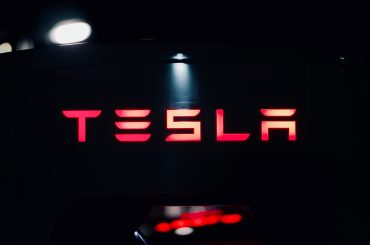At least ten car companies have made plans to switch to exclusively producing electric vehicles by a certain year, with 2025 being an early target. According to a BloombergNEF estimate, 54 million EVs will be sold worldwide by 2040, up from 1.7 million in 2020 and 450,000 in 2015.
There is a concerted push to reduce emissions across industries, and one of them is making the conversion from gas to electric. The Environmental Protection Agency estimates that 28% of America’s greenhouse gas emissions come from transportation.

Political pressure from other states and nations is also a contributing factor in the change in output. The state of California has an as-yet-unenforced objective of eliminating the sale of gasoline-powered vehicles by the year 2035. In the middle of the 2030s, sales of gasoline automobiles will be halted in Japan. Norway aims to end the sale of gas cars even sooner, in 2025. By 2040, the sale of gas-powered vehicles will be prohibited in the United Kingdom and France.
BMW, Honda, Nissan, Mazda, and soon Ford, with the electric Ford F-150 on the horizon, are just a few examples of the many automakers that are offering hybrid and electric models in addition to their standard gas-powered automobiles.
However, others are trying to emulate Tesla by switching out their whole manufacturing infrastructure. Don’t assume that all automobiles will switch to electric overnight. Long after the big automakers have stopped selling gas guzzlers and started selling just electric ones, you’ll still see plenty of people driving about in their gas-powered automobiles.

Tesla, the market leader in electric vehicles, and up-and-coming companies Lucid, Rivian, and Fisker are some examples of EV manufacturers that have only ever provided battery-powered choices. Companies that relied only on sales of gas-powered automobiles have freely declared their intention to shift to electric vehicles in recent years.
In the next 15 years or more, these automakers will likely sell nothing just electric vehicles:
Jaguar
The Jaguar I-Pace is an electric vehicle that has set the pace for the British automaker, which will be completely electrified by 2025. Considering the I-Pace is the sole electric vehicle offered by the premium automaker, Jaguar has some ground to make up in the electrification stakes. Six different Jaguar SUVs, sports cars, and sedans—including the all-electric I-Pace—are now sold in the United States.
Last month, the business unveiled the new objective and said that they expect it would take until 2030 until all Jaguars sold are electric.
Soon, all Bentleys will have the option to become electric. That’s what the venerable carmaker promised a year ago when it said that by 2030 all of its vehicles will be electric solely.
Bentley plans to produce hybrid versions of its vehicles as a transitional step toward fully electric vehicles. In 2021, we should hear about not one but two hybrids. Bentley anticipates selling solely battery or hybrid models by that year.

Automaker GM
American carmaker General Motors caused a stir at CES 2021 when it said it will cease making polluting vehicles by the year 2035. In its place, General Motors will increase the number of electric vehicles it offers, from zero to thirty by 2025 across all of its brands, including Chevrolet, Buick, Cadillac, and GMC.
Mini, made by BMW
BMW has no plans to abandon gas engines anytime soon, but its Mini brand is transitioning to electric vehicles. Reports surfaced this week claiming that Mini would solely produce plug-in hybrids and electric vehicles by the year 2030. At this time, the only available electric vehicle is the Mini Cooper SE.
Volvo
This month, Volvo introduced its second all-electric sport utility vehicle and set an additional objective. The Swedish automaker, which is now controlled by China, aims to have entirely electric vehicles on the market by 2030.
Electric variants of its gas-powered vehicles, like as the XC40 Recharge, are helping it get there.
Ford (but only in Europe)
Ford is now releasing a plug-in hybrid version of the F-150 pickup truck in the United States, but it still intends to sell the standard gas-powered model alongside the hybrid. According to an article published by The New York Times last month, however, things are rather different in Europe.
The American automaker plans to stop selling gasoline and diesel cars in Europe by 2026 and replace them with electric and plug-in hybrid versions.
Volkswagen
In 2018, Volkswagen ambitiously planned to phase out internal combustion engine cars by 2026. That year, Volkswagen will produce its last gas-powered vehicle before switching to electric exclusively.
Volkswagen revised its target for completely electric vehicle sales in the United States to 55% by 2030 in March 2022.
The ID.4 will be built in the United States by the year’s end (2022), the ID. Buzz electric van will be introduced in 2024, and new battery-powered sport utility vehicles (SUVs) will arrive in the States in 2026.






